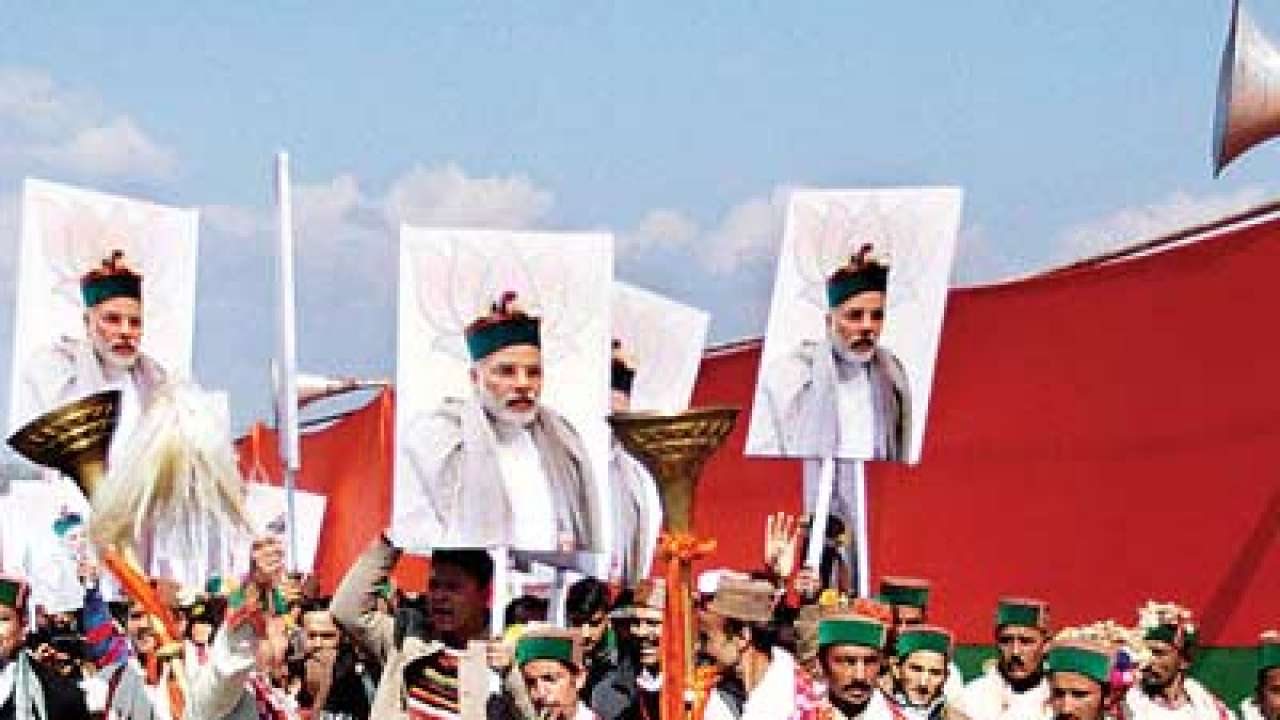
Imagine a scenario wherein a routine session of bullying among some school kids escalates into a serious scuffle. Some of the stronger boys are able to overpower the other kids. Vowing revenge, the other kids then retaliate when least expected and both sides manage to inflict lots of pain on each other.
Finally, the boys tire of their hurt bodies, decide to bury their hatchets and move on. Each feels satisfied that justice was delivered, school-yard style.
Gujarat in 2002 may have executed just this type of justice under the blessing of its Chief Minister Narendra Modi. Following the deaths of Kar Sevaks who were returning in a train from Ayodhya, many Hindu activists, including the RSS, may have looked up to Modi for a firm response that would befit their anger and at the same time confirm his loyalties. For his part, Modi may have shared in the anger of his Hindu compatriots and may have found it proper to grant them a brief, cathartic window of vengeance for the deaths of their comrades. After all, they were attacked first, he must have rationalised.
Whether or not these imagined motivations bear any resemblance to what transpired in the minds of the people involved, we may never know. What we do know is that as Chief Minister, Narendra Modi presided over what historian Gyanendra Pandey described an “organised political massacre” and what other political analysts have called an “orchestrated pogrom against Muslims” in the state.
Modi devotees, however, are quick to point out that the Supreme Court appointed Special Investigation Team (SIT) has exonerated him of any wrongdoing in the incidents that led to the riots of 2002. He is therefore not guilty and we should all just move on. However, the findings of the SIT remain far from settled for many who have not drunk the kool-aid. A book by the journalist Manoj Mitta, “The Fiction of Fact-Finding,” unravels in painstaking detail the layers of obfuscation in the SIT report. For instance, Modi’s claim to have remained completely ignorant about the prolonged siege and massacre of muslims in Gulberg Society until about five hours after the incident smacks of duplicity given the magnitude of the event and the high-profile status of one of the victims; moreover, it belies his own testimony that he maintained a keen eye on the law and order situation in Ahmedabad in real-time as it unfolded post the violence in Godhra.
Nevertheless, Modi himself accepts no guilt and tenders no apology for what transpired during those fateful days under his watch. In a telling comparison, Modi instead said he felt sad at the turn of events just as one would feel sad about their car running over a puppy on the road; but not guilty at all.
Notably, since these events, Modi’s popularity has only surged. The Hindu electorate in his state turned up in decisive numbers to ensure his victory in state assembly elections for two consecutive terms, in what may be seen as a gesture of loyal reciprocity. By the time Modi shifted his gaze to national politics, his propaganda machine began cranking in full gear to paint him as a clean and astute statesman unperturbed by the ghosts of Godhra.
The timing could not have been more perfect.
India is reeling under a colossal failure of governance by the Congress-led alliance at the center in addition to corruption scandals of epic proportions. The mood of the country is justifiably discontented and desperate. The Indian youth in particular are eager to see a decisive leader take charge and lead the nation out of its economic sluggishness. Unfortunately, as Aristotle observed, the youth are also the easiest to deceive because they are the quickest to hope.
And when the spirits are this low and the hopes so high, even the boldest among us may seldom have the courage to confront what we really know. Therefore, as we move closer to the polls, let us harbor no illusions as to what confronts us: the fact that ostensibly the most favored candidate for Prime Minister of India is at the same time, at the very least, suspected of aiding and abetting mass murder. And if a suspicion of such gravity is not enough cause for caution, then we are no longer the victims of deception. We are party to it.
The writer is based in Mumbai. You can follow him on twitter at @jerrystweet